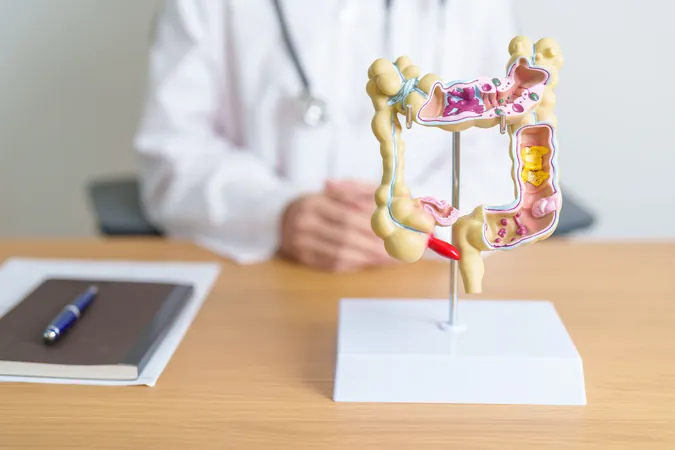
Groundbreaking Study: No Impact on Disease Activity When Kids with IBD Switch to Infliximab Biosimilars!
2025-01-25
Author: Daniel
In a landmark real-world study focusing on adolescents and young adults with inflammatory bowel disease (IBD), researchers found no substantial differences in disease activity or key laboratory markers between patients who continued using the original infliximab (Remicade) and those who made the transition to the biosimilar CT-P13 (Inflectra; infliximab-dyyb). This groundbreaking study emphasizes the safety of biosimilars in pediatric populations and could alter treatment approaches worldwide!
Historically, there has been limited research on switching from the reference infliximab to biosimilars in children with IBD. However, this study's reassuring findings suggest that young patients can switch to the biosimilar without fearing a deterioration in their condition. The researchers emphasized, "Patients and families should be reassured of the safety of switching to a biosimilar."
Tumor necrosis factor (TNF)-α inhibitors have been a cornerstone in treating both adults and children with inflammatory bowel disease, with infliximab being approved for pediatric use as early as 2006. The approval of the first biosimilar, CT-P13, came from the European Medicines Agency (EMA) in 2013 and the FDA in 2016, allowing cost-effective treatment options. Many children have been transitioned to the biosimilar due to insurance mandates, but prior to this study, the lack of substantial pediatric data made many families apprehensive about the switch.
The study examined a group of 279 patients, predominantly those diagnosed with Crohn's disease, aged between 6 and 26 years, treated consistently at Connecticut Children's Hospital. They were divided into two groups: those who switched to CT-P13 and those who remained on the original infliximab for at least a year while managing their condition. Remarkably, after six and twelve months, both groups exhibited no noteworthy changes in laboratory markers such as hemoglobin, albumin, C-reactive protein, or erythrocyte sedimentation rate, and around 2% of patients in both segments were hospitalized.
The results also revealed interesting patterns in dosing. In the group that switched to the biosimilar, only 4% required a dose reduction, while 30% needed an increase. Conversely, for those who stayed on the original drug, 17% required a decrease, and 34% needed an increase. Antidrug antibodies were observed in a small proportion of patients, with 11.7% in the biosimilar group compared to 16.9% in the reference group.
These results align with an earlier small-scale study, but what sets this research apart is that it represents the most comprehensive single-center comparison of pediatric and adolescent patients who switched medications. The researchers concluded emphatically that there are "no changes in clinical course" after switching to the biosimilar.
With further studies encouraged to include fecal markers of inflammation and more extensive multi-center trials, the authors assert the need for healthcare providers to proactively address concerns that patients and families may have regarding medication changes. "Our data should be reassuring to providers, patients, and their families," they stated, promising to pave the way for a new understanding of treatment options in pediatric IBD management.
As the medical community moves forward, this study may disrupt existing paradigms about biosimilars, providing hope for families wondering about treatment safety and effectiveness. Is your child on a costly medication? It might be time to consider the potential benefits of switching to a biosimilar! Stay informed—it could make a difference!

 Brasil (PT)
Brasil (PT)
 Canada (EN)
Canada (EN)
 Chile (ES)
Chile (ES)
 Česko (CS)
Česko (CS)
 대한민국 (KO)
대한민국 (KO)
 España (ES)
España (ES)
 France (FR)
France (FR)
 Hong Kong (EN)
Hong Kong (EN)
 Italia (IT)
Italia (IT)
 日本 (JA)
日本 (JA)
 Magyarország (HU)
Magyarország (HU)
 Norge (NO)
Norge (NO)
 Polska (PL)
Polska (PL)
 Schweiz (DE)
Schweiz (DE)
 Singapore (EN)
Singapore (EN)
 Sverige (SV)
Sverige (SV)
 Suomi (FI)
Suomi (FI)
 Türkiye (TR)
Türkiye (TR)
 الإمارات العربية المتحدة (AR)
الإمارات العربية المتحدة (AR)